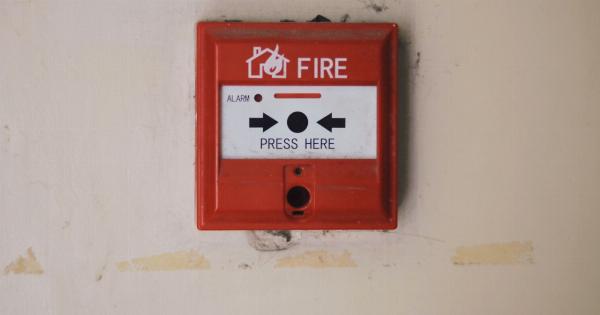Bloating is a common digestive issue that affects many people. It occurs when your stomach feels full and tight due to excess gas production or retention. While bloating is not usually a serious health concern, it can be uncomfortable and even painful.
In this article, we will show you three tricks on how to prevent bloating.
Eat Slowly
Eating too fast can cause air to enter your digestive system, which leads to bloating. When you eat too quickly, you tend to swallow more air, which then accumulates in your stomach and intestines. This can cause discomfort and bloating.
To avoid this, try to eat slowly and chew your food thoroughly. This will not only prevent bloating but also improve digestion.
Avoid Certain Foods
Certain foods can cause bloating due to their high fiber content or the production of gas during digestion. Some common culprits include beans, lentils, broccoli, cabbage, onions, and carbonated drinks.
While these foods can provide health benefits, they can also cause bloating in some people. To prevent bloating, you may want to limit your intake of these foods or avoid them altogether.
Stay Hydrated
Dehydration can cause constipation, which in turn can lead to bloating. When you are dehydrated, your body tries to conserve water by extracting it from your stool, which can make it harder and more difficult to pass.
This can cause gas to build up in your colon, leading to bloating. To prevent this, make sure you drink plenty of water and other fluids throughout the day.
Avoid Overeating
Overeating is one of the most common causes of bloating. When you eat too much food at once, your stomach becomes full, causing pressure on your abdomen. This pressure can force the gas to be trapped in your intestines, leading to bloating.
To prevent overeating, try to eat smaller, more frequent meals throughout the day instead of a few large ones.
Exercise Regularly
Regular exercise can help prevent bloating by improving digestion and reducing constipation. Exercise helps to stimulate the muscles in your digestive system, which helps to move food along more quickly.
This reduces the amount of time that gas has to accumulate, reducing the risk of bloating. Additionally, exercise can help reduce stress, which is also a risk factor for bloating.
Avoid Chewing Gum
Chewing gum can cause you to swallow air, which can lead to bloating. When you chew gum, you tend to swallow more frequently, which can cause gas to accumulate in your stomach and intestines. This can cause discomfort, bloating, and cramping.
To prevent bloating, try to avoid chewing gum or limit the amount that you chew.
Avoid Drinking Through a Straw
Like chewing gum, drinking through a straw can cause you to swallow air, which can lead to bloating. When you drink through a straw, you tend to swallow more frequently, which can cause gas to accumulate in your stomach and intestines.
To prevent bloating, try to avoid drinking through a straw or limit the amount that you do.
Eat Smaller, More Frequent Meals
As mentioned earlier, overeating is a common cause of bloating. Eating smaller, more frequent meals can help prevent overeating and reduce the risk of bloating.
Smaller meals are also easier for your body to digest, which can help prevent constipation and reduce gas production. To prevent bloating, try to eat five or six small meals throughout the day instead of three large ones.
Avoid Dairy Products
Dairy products can cause bloating in some people due to lactose intolerance. Lactose is a sugar found in milk and other dairy products. Some people are unable to digest lactose, which can lead to bloating, abdominal pain, and diarrhea.
To prevent lactose intolerance, try to avoid dairy products or choose lactose-free alternatives.
Manage Stress
Stress can cause bloating by altering your digestive system’s normal functions. When you are stressed, your body releases hormones that can affect your digestion and lead to constipation.
Additionally, stress can cause you to swallow air, leading to bloating. To prevent stress-induced bloating, try to manage your stress through relaxation techniques such as yoga, meditation, or deep breathing exercises.






























